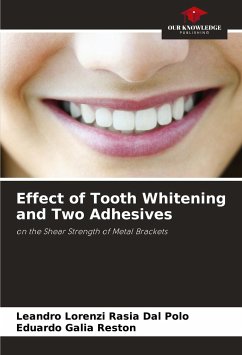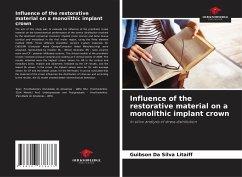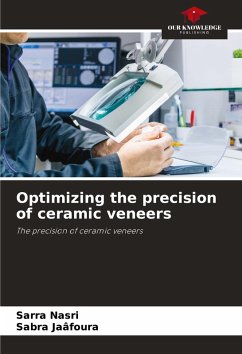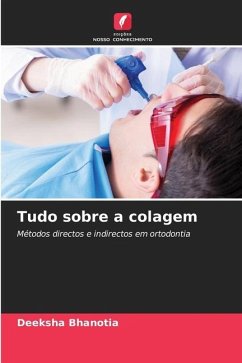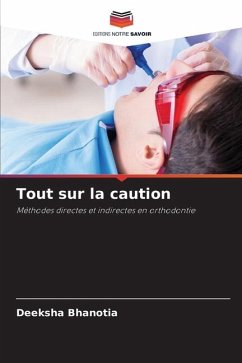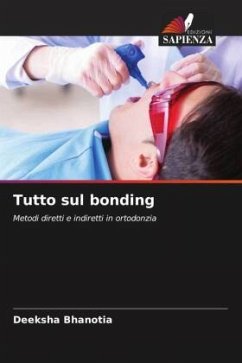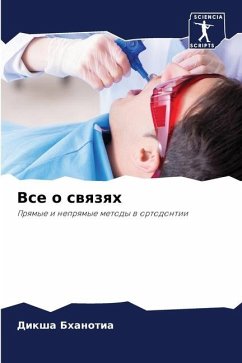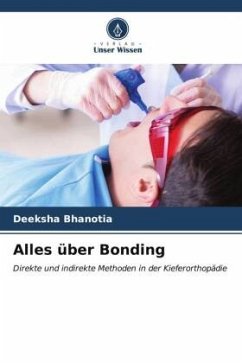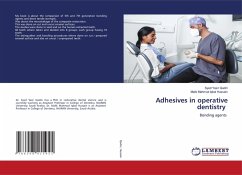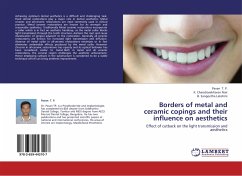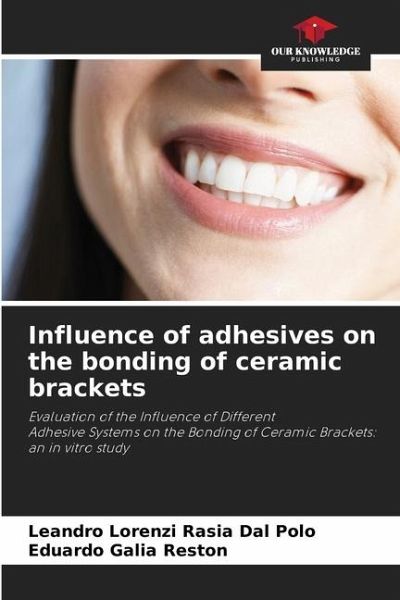
Influence of adhesives on the bonding of ceramic brackets
Evaluation of the Influence of DifferentAdhesive Systems on the Bonding of Ceramic Brackets: an in vitro study
Versandkostenfrei!
Versandfertig in 6-10 Tagen
27,99 €
inkl. MwSt.

PAYBACK Punkte
14 °P sammeln!
The influence of the use or not of an adhesive and a self-conditioning resin cement on the bonding of polycrystalline ceramic orthodontic brackets was evaluated, checking: 1) shear strength; 2) areas of adhesion failure; and 3) the presence of cracks. Sixty bovine teeth were divided into 3 groups: 1) experimental group, bonded with RelyX U200 resin cement; 2) experimental group, bonded exclusively with Transbond XT resin; and 3) control group, bonded with adhesive and Transbond XT resin. The lowest statistically significant mean shear bond strength was observed in group 1 (RelyX U200): 2.77 MP...
The influence of the use or not of an adhesive and a self-conditioning resin cement on the bonding of polycrystalline ceramic orthodontic brackets was evaluated, checking: 1) shear strength; 2) areas of adhesion failure; and 3) the presence of cracks. Sixty bovine teeth were divided into 3 groups: 1) experimental group, bonded with RelyX U200 resin cement; 2) experimental group, bonded exclusively with Transbond XT resin; and 3) control group, bonded with adhesive and Transbond XT resin. The lowest statistically significant mean shear bond strength was observed in group 1 (RelyX U200): 2.77 MPa. In the Transbond XT bonding groups (groups 2 and 3), regardless of whether or not adhesive was used, the average values were very similar: 5.82 MPa in group 2 (without adhesive) and 5.73 MPa in group 3 (control with adhesive), with no statistically significant difference. There was no statistically significant difference between the groups when it came to ARI and assessing the presence ofcracks after detaching the brackets. The use of adhesive can be dispensed with when using Transbond XT to bond ceramic brackets.



